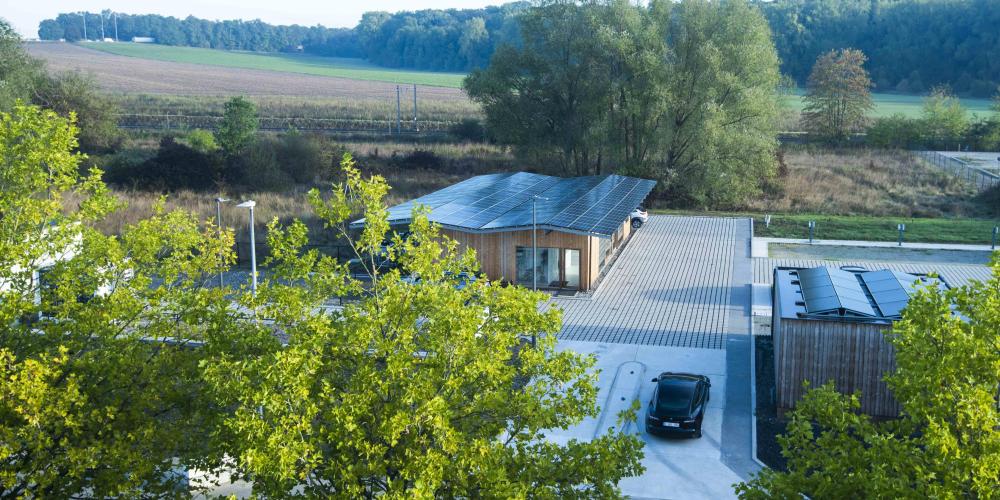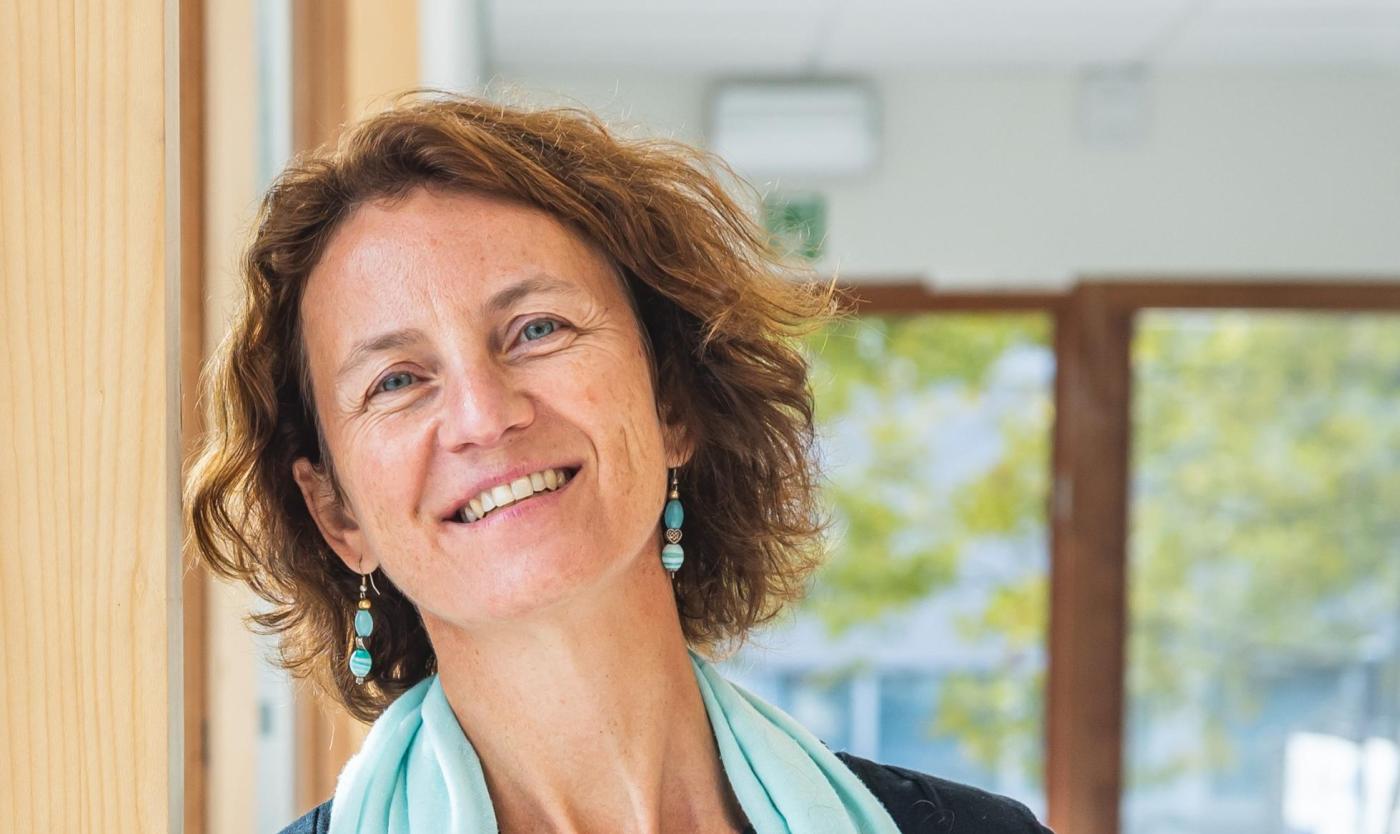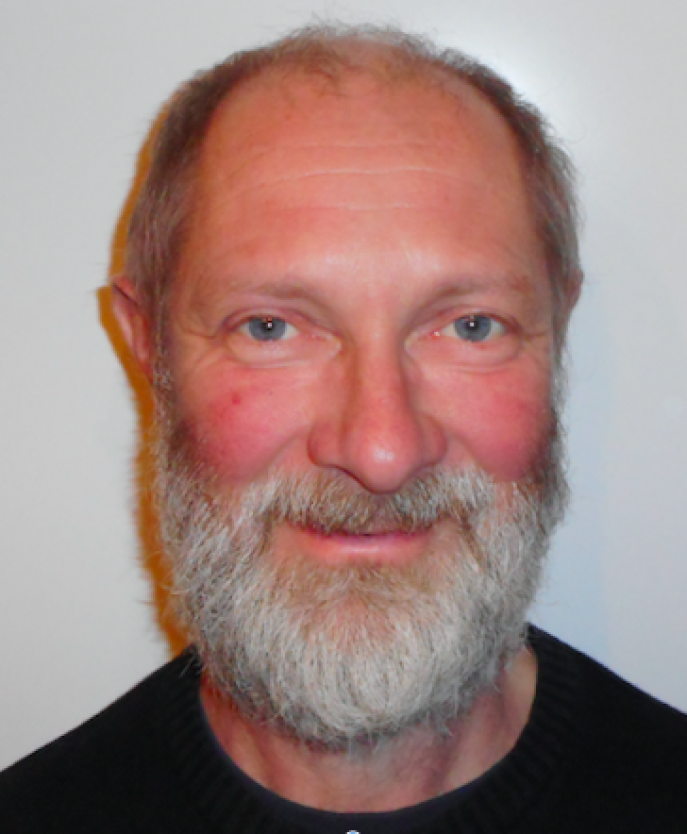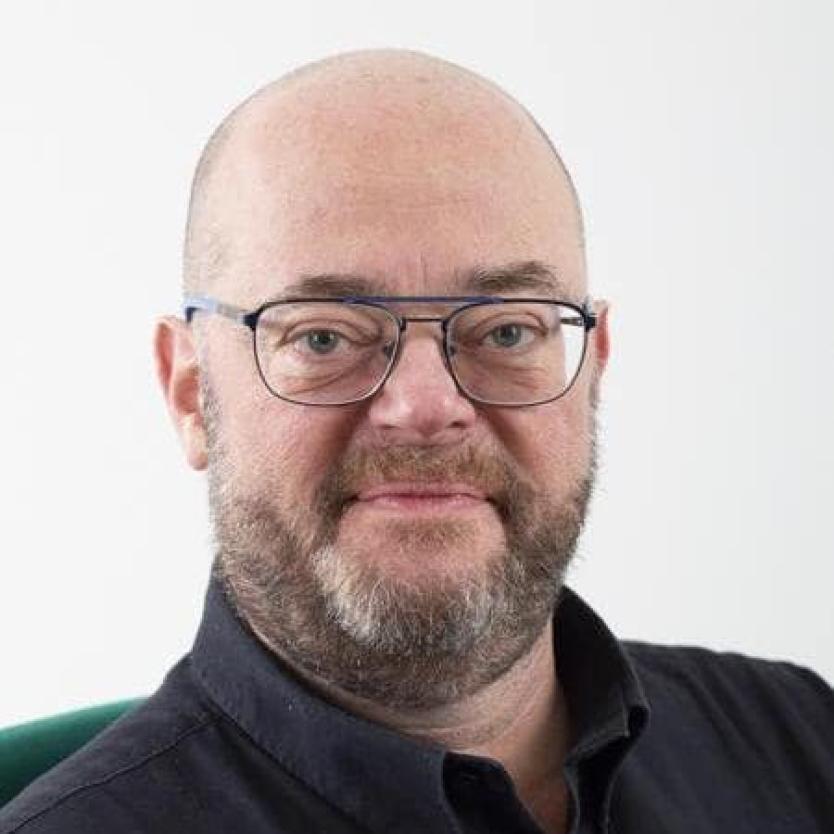
Flanders Technology & Innovation (FTI) is establishing its social headquarters at the Green Energy Park (GEP) in Zellik. The GEP is a living lab where VUB, UZ Brussel, companies, research institutions and governments work together on innovative and sustainable solutions to societal challenges. Director Inne Peersman: “In addition to the fields of energy, mobility, climate, environment and health, there is also research being carried out here on robots, AI and electronics.”
You can find the FTI Brussels program here.
FTI’s establishment at GEP takes place during the FTI Festival, which runs until 24 March, introducing the public to technology and innovation in the region through a number of activities.
Green Energy Park
The GEP research centre of the VUB and UZ Brussel is still under construction, but it is already emerging as an innovation hub par excellence. A sustainable, CO2-neutral Nexus data centre of about 10,000 m² will house not only the servers of VUB and UZ Brussel but also the next Flemish supercomputer, a Tier 1 supercomputer. This digital infrastructure will enable Flemish researchers, governments and industry to perform calculations more quickly and efficiently and thus to continue working on the major challenges of tomorrow.

GEP general management director Inne Peersman
GEP director Inne Peersman: “Every research group at the VUB is welcome to join us. We offer them a highly motivated and passionate team that listens to their specific needs and expectations. We then look at how we can support them with the existing state-of-the-art living labs or with the living labs of tomorrow. We now have living labs for energy and climate and we are about to create a living lab for health.
"So there is always a direct or indirect link as a researcher to the studies that are already taking place here."
“The collaboration with our living labs is only part of the story. We also want to find space for new researchers and are working with companies and federations to see how we can align their research with the market. A lot of businesses and schools that are interested in innovation and in co-creation come here. We want to support the research groups in that too, because they don’t always have the time or network themselves. In addition to the fields of energy, mobility, climate, environment and health, there is also research being carried out here on robots, AI and electronics. So researchers can always find a direct or indirect link to the work already taking place here.
“Today, with the data centre, we have 10,000 m² at our disposal, but there is still a lot to be added. Once our lab building is there – in late 2025 or early 2026 – there will be an immense amount of space added. And more buildings will follow. We will open the data centre on 7 May.”
Research project at GEP: ecological circular building
Three VUB research groups, Engineering Architects, Architecture and Physical Chemistry, are collaborating in the European research project under the name Reconstruct. In a demo on the GEP site, they are putting the sustainability of prefabricated building systems to the test. They have constructed a building that can be disassembled and replaced with new concrete elements.
“Today, the purpose of a building changes very quickly”

Research leader Reconstruct professor Hubert Rahier
Professor Hubert Rahier leads the Reconstruct research group: “Today, the purpose of a building changes very quickly: just think of office spaces or residential care centres, where practices and rules change every 10 years and a building has to be adapted to keep it habitable. So it’s cheaper to work with a system where the space is modular, using mobile elements. We are also developing a new ecological floor panel. Steel is usually used to reinforce concrete; we are replacing that with textile for a number of reasons. You can make much thinner panels, it is not flammable and it insulates sound better. The idea is to make a structure whose concrete will be almost carbon neutral. We are doing that with our second project, Tecaton, where we are replacing cement with an alternative binder.
“Tecaton started on 1 March. Among other things, the project focuses on taking cement out of the production process. To do so, we are developing innovative concrete based on alkali-activated cement, which incorporates ground granulated blast furnace and biomass ashes. With that material, we can save 80% of carbon emissions compared to ordinary cement.”
Research project at GEP: EVERGI: sustainable use of energy
“The EVERGI research group focuses on multi-energy,” says research leader Professor Thierry Coosemans. “The Smart Village Lab has made a lot of strides, including in a number of European and Flemish projects, and two new projects have just been approved that will provide essential expansion over the next two years. Until now, we have mainly focused on intelligent use of electrical components: smart charging stations, solar panels and batteries. Now more attention is being paid to the integration of thermal components and even renewable gases such as green hydrogen and other renewable molecules are being added to the system. It will provide a new complete set-up that can combine almost all possibilities of energy forms on a small scale.”
“Our presence at the GEP has allowed us to participate in a number of European projects”

Research leader EVERGI professor Thierry Coosemans
“In addition, we offer a truly interdisciplinary approach. For example, we always evaluate the sustainability of technologies and products through our unique life cycle analysis (LCA) software models with six LCA experts. After the sustainability screening, we work with industry to see how to reduce environmental impact, avoid the use of critical materials and improve social impact in the supply chain. In doing so, we certainly don’t overlook the economic feasibility of new technology,” said EVERGI director Professor Maarten Messagie.
Thierry Coosemans: “Our presence at the GEP has enabled us to participate in a number of European projects. Thanks to GEP, we have also been able to develop and validate knowledge around energy management and smart charging of vehicles using renewable resources as much as possible. The intention is now to be able to develop algorithms and technologies at the Smart Village Lab through the use of renewable gases as part of energy management. We are unique in this in Flanders. It will undoubtedly be an advantage in bringing in new projects.”
Active research groups and contact GEP
The following VUB research groups are active at the GEP: Sustainable Material Technologies, ETRO, Thermodynamics and Fluid Mechanics Group, Artificial Intelligence Research Group and Brussels Photonics. Is your group interested in conducting research in this stimulating environment? Contact info@greenenergypark.be